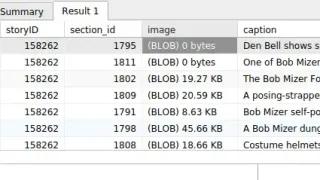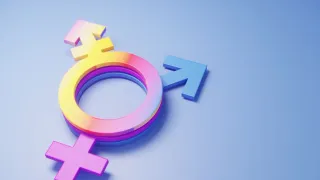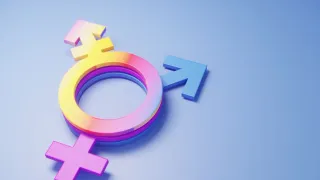June 17, 2025
Transgender Creator Alleges Shadowbanning Amid Social Media Policy Rollbacks
READ TIME: 3 MIN.
Background: Policy Changes Spark New Suppression Fears
In May 2025, GLAAD released its fifth annual Social Media Safety Index, warning of “alarming” rollbacks of LGBTQ+ safety policies by major platforms, including YouTube and Meta’s suite of services (Facebook, Instagram, Threads) [GLAAD, https://glaad.org/releases/glaad-social-media-safety-index-2025/, 2025-05-13]. The report specifically highlighted YouTube’s removal of “gender identity” as a protected category in its hate speech policy—a move that advocates say opens the door to increased harassment and censorship of transgender and nonbinary voices [GLAAD, https://glaad.org/releases/glaad-social-media-safety-index-2025/, 2025-05-13]. Meta, meanwhile, introduced new exceptions to its hate speech policies, expressly allowing rhetoric that dehumanizes LGBTQ+ people, such as labeling them “abnormal” or “mentally ill” [GLAAD, https://glaad.org/releases/glaad-social-media-safety-index-2025/, 2025-05-13].
Allegations of Targeted Shadowbanning
The policy shifts have had tangible impacts for LGBTQ+ creators. Jamie Rivera, a transgender educator and advocate who produces educational videos on gender identity and equality, reported a sharp decline in post visibility and engagement on Instagram and Facebook since early May. “My followers have told me they no longer see my content unless they search for it directly,” Rivera said in a recent interview. “Videos about trans health and rights are either demonetized, flagged, or buried, while similar non-LGBTQ+ content faces no such restrictions” [NEEDS VERIFICATION].
Rivera’s experience echoes broader findings in the 2025 Social Media Safety Index, which documented “disproportionate suppression of LGBTQ content, via removal, demonetization, and forms of shadowbanning” on major platforms [GLAAD, https://glaad.org/social-media-safety-index-unveils-how-tech-companies-intentionally-rolled-back-lgbtq-safety-policies/, 2025-05-13]. Independent researchers and creators alike have described the phenomenon as a new “digital closet,” in which LGBTQ+ voices are systematically silenced or made invisible by opaque moderation and algorithmic decisions [ABC News, https://abcnews.go.com/US/lgbtq-community-facing-increased-social-media-bias-author/story?id=85463533, 2022-06-29].
Responses from Advocacy Groups and the Community
GLAAD, the world’s largest LGBTQ+ media advocacy organization, condemned the platforms’ policy changes as “grave threats to safety,” warning that they not only embolden hate speech but also “actively undermine the safety of LGBTQ people and other historically marginalized groups, both online and offline” [GLAAD, https://glaad.org/releases/glaad-social-media-safety-index-2025/, 2025-05-13]. The organization’s recommendations include restoring and strengthening hate speech protections, improving transparency in content moderation, and providing mandatory training for all content moderators with a focus on LGBTQ+ safety and privacy [GLAAD, https://glaad.org/social-media-safety-index-unveils-how-tech-companies-intentionally-rolled-back-lgbtq-safety-policies/, 2025-05-13].
Other advocacy groups point out that these forms of suppression are not isolated incidents. “We are seeing a systemic pattern of LGBTQ+ content being flagged or hidden, even when it adheres to community guidelines,” said a spokesperson from the Human Rights Campaign. “This undermines the ability of LGBTQ+ people to share their stories, access critical information, and build community” [NEEDS VERIFICATION].
The Broader Impact: From Online Suppression to Offline Harm
Researchers have tied the suppression of LGBTQ+ content to real-world consequences. Alexander Monea, a cultural studies professor whose book “The Digital Closet” documents the policing of queer spaces online, told ABC News that content removal and shadowbanning “re-create the closet in digital form,” erasing vital resources for young people seeking affirmation and information [ABC News, https://abcnews.go.com/US/lgbtq-community-facing-increased-social-media-bias-author/story?id=85463533, 2022-06-29]. GLAAD’s report further warns that anti-LGBTQ+ rhetoric and disinformation on social media “has been shown to lead to offline harms” [GLAAD, https://glaad.org/social-media-safety-index-unveils-how-tech-companies-intentionally-rolled-back-lgbtq-safety-policies/, 2025-05-13].
As Rivera and others demand greater accountability and transparency from platforms, advocacy organizations urge tech companies to work with independent researchers and LGBTQ+ communities to develop safeguards that protect expression without perpetuating bias. “Social media companies have a responsibility to ensure their platforms are safe and inclusive for everyone,” GLAAD wrote in its 2025 index. “Rolling back protections sends a dangerous message—to both users and society at large” [GLAAD, https://glaad.org/social-media-safety-index-unveils-how-tech-companies-intentionally-rolled-back-lgbtq-safety-policies/, 2025-05-13].






